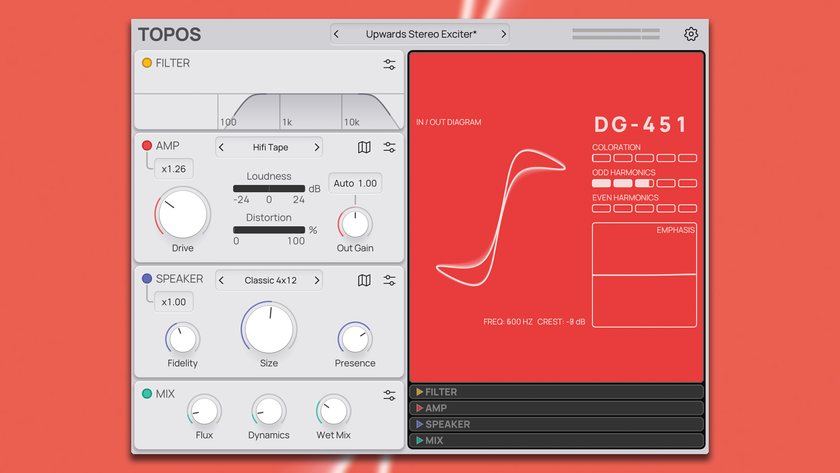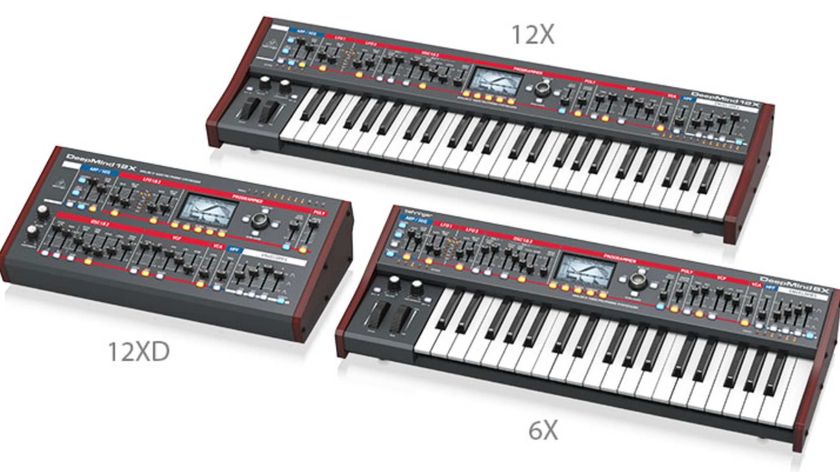
Black Swans And Wormhole Wizards full album preview: intro
On Joe Satrani's upcoming solo album, Black Swans And Wormhole Wizards, the guitar icon goes deeper into his soul than ever before. "It's like I had no choice in the matter," he tells MusicRadar. "The last year has been one of phenomenal change, professional highs and a very tragic personal hardship. As a musician who wants to convey powerful statements, tapping into my emotions was key.
"Making this record was an amazing outlet for me. Musically and spiritually, it surprised me greatly, and I think my fans will feel the same way."
2009 was indeed a memorable year for Satriani. There was the triumph of Chickenfoot, his big-time “supergroup” (which also includes singer Sammy Hagar, ex-Van Halen bassist Michael Anthony and Red Hot Chili Peppers drummer Chad Smith). But there was also, last December, the unexpected death of his mother, Katherine. “Suddenly, I had to face everything that had happened and make sense of it all,“ he says. “As a songwriter, that was my overriding goal."
Goal set and realized, MusicRadar can report after hearing an advance preview of Satch’s absorbing new masterwork. Co-produced by Satriani and Mike Fraser, the album sees the guitarist working with his longtime drummer and percussionist Jeff Campitelli along with a couple of new faces: bassist Allen Whitman (from the San Fransicso-based band The Mermen) and keyboardist Mike Keneally, who has played with everyone from Steve Vai to Screamin’ Jay Hawkins. “It was a real thrill to work with such a talented group,” says Satriani. “They pushed me but in ways I relished. I found that I dropped my inhibitions and let my heart do the playing.“
Black Swans And Wormhole Wizards will be released in the UK on 4 October and 5 October in the US. On the following pages, MusicRadar presents our initial impressions of each song, along with an exclusive walkthrough of the selections by Joe Satriani.

Premonition
A dynamite opener that blasts out of the gate at a breakneck pace. A surging, ominous yet majestic epic in which the imposing weight of the guitar frequencies could move air. The breakdown section is tough as a rusty piece of chain, followed by overwhelming waves of shred.
Joe Satriani says:
“It was written very quickly, although it sounds like it might have been composed in sections. It was about that feeling you get when you feel that something is not right. It doesn’t let up. It’s kind of nightmarish, in a way.
"The guitar tone is different than what people might expect, and in that regard, this is one of my 'black swans.' The expression 'black swan' is one that’s very old, and basically it means ’unlikely things’ - images, occurrences, extreme rarities in life. I love how Premonition sets the tone for the album - you don't know what's coming next."
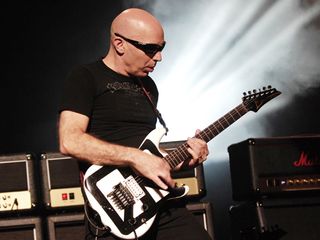
Dream Song
An intoxicating, mid-tempo funk rocker, driven by a gentle wah-wah guitar rhythm and a bubbling keyboard melody. The song, true to its title, transports the listener to a sensual state of bliss. Satch's guitar tone is by turns thick and rich, screaming and crying.
Joe Satriani says:
“I literally woke up one morning and I had the whole thing. It came to me in my sleep! I had to run into my studio quickly before I forgot it. All you need is that one little thing to change from the original idea and the whole vibe is lost.
"I wanted to come up with ways for it to be bluesy and R&B-ish but still be ‘Joe Satriani.’ The wah-wah and the organ were crucial sonic elements. As I recorded, I thought of images, photographs and people in my life. In that way, it was a dream song but it was very real, as well.”

Pyrrhic Victoria
Satch's guitar is sassy and squawky on this gruff funk number, which features two bridge sections that are downright symphonic. Amid the grandeur, he lays down a pulverizing guitar solo. Simply smashing.
Joe Satriani says:
“The song is about winning at great loss. It’s from an old ancient story where a king said, ‘If we win another battle like that, it’ll be the death of us.‘
"It became a phrase that’s been handed down through the years, and I associated it with physical things that I do, where I’ve come to a conclusion of what I think is a victory and I'll go, ’Wow, that wasn’t without some sacrifice.’ But that's OK. Sometimes the best art needs you to shed some blood, you know? While cutting the song, the guys in the band helped me to not let up."
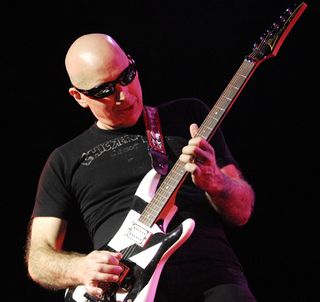
Light Years Away
What sounds like a definite first single, Light Years Away is a bruising, instantly memorable rocker that marries the spirit of La Grange-era ZZ Top with Jeff Beck at his jazziest. The solo is an absolute corker!
Joe Satriani says:
"It’s almost the history of rock guitar riffs. The main guitar line was a hard one for me to figure out. It sounds kind of simple and funny, but it perplexed me.
"Light Years Away was something of a puzzle that I needed to solve. But once the band and I played it together, we looked at one another and went, ‘Wow! That really swings.’ It does have a touch of fusion, but it’s got the rock, too.”
Listen: Joe Satriani - Light Years Away

Solitude
Who says a few simple chords can't send shivers down the spine? This brief interlude, a delicately plucked solo acoustic offering, does just that. The echo of the room captures the mood exquisitely.
Joe Satriani says:
”I was working on a song called Heartbeats that will probably be a bonus track on iTunes, and I started improvising this intro that started to evolve. It was all about being alone with your soul, so the message was pretty heavy. Then I thought, It’s too bad this piece has to be in front of Heartbeats, and gradually I saw that it could stand on its own.
“I was channeling my parents, and I was thinking of where they would go mentally in their need for solitude. I had to get to that place to get the courage to see it as a stand-alone song.”

Littleworth Lane
Think Joe Satriani is all about razzle-dazzle guitar histrionics? Prepare to see another side of Satch, as Littleworth Lane is pure, unadulterated blues. Over a pulsating Hammond B3, he plays a restrained yet shimmering melody. Sensitive phrasing and flawless note choices make this a stirring experience.
Joe Satriani says:
"The title is taken from the street in Sea Cliff, New York, where my mother lived since the late '70s, in a house built in 1689. My mom was bobbysoxer, and she got into church music, R&B, jazz and blues. When I was a young musician, she exposed me to a lot of that. So I wanted to pay tribute to her by writing the kind of song that she would really like, one that summed up her spirit.
"People might think this is a radically different kind of song for me. But the funny thing is, if you walked into my house, this is exactly the type of music that I play - and I have my mom to thank for it."
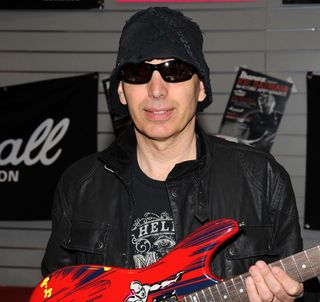
The Golden Room
A playful, light gallop of Indian percussion allows Satriani to weave webs of overworldly guitar goodness. His tone is stinging, scorching...and ultimately soothing. Overall, it's like being whisked away to a distant land. You can almost picture the belly dancers!
Joe Satriani says:
“The phrase is about something you imagine that can protect you from outside negative vibrations. You can call it meditation or whatever, but basically you call it the ’golden room,’ and you can regroup mentally once you put yourself in that place.
"I’d been working on the piece of music for two years. I created a loop of six or seven Indian percussion instruments. Originally, I used the loop to practice to, but one day a real melody started to emerge. Funnily enough, it became almost Spanish sounding and not so Indian - again, something quite different.”
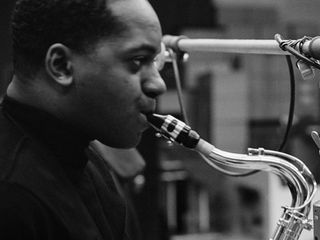
Two Sides To Every Story
How many musical personalities can Joe Satriani inhabit while still sounding like himself? Here you'd swear he traded places with George Benson on this altogether bright and breezy jazz-blues rocker. The rhythm section of Allen Whitman and Jeff Campitelli gets cookin' during the middle break where Satch pulls out some of his snakiest licks yet. Fun stuff!
Joe Satriani says:
“My guitar sound is way different for me here, too, and I love it. My mom turned me on to Eddie Harris, a brilliant saxophone player. He had a lot of songs that cross genres, and he was really great with odd times.
"When I wrote the piece, I knew it was Eddie Harris, and again I knew I was tipping my hat to my mom, for the musical education she instilled in me. There's the bluesy section and the minor key solo section, which is the other side to the story. You get a lot in a song like this.”
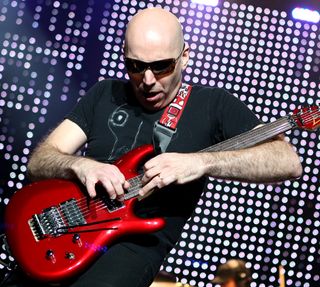
Wormhole Wizards
Bassist Allen Whitman shines on this massively grooving funker - he doesn't 'go off'; he just drives the tune with relaxed authority. Jeff Campitelli is right there in the pocket with him - these two work well together. Satriani alternates between crunching rhythm guitars and spacey, snarling lines that hit you in all the right places. Oh, hey - Mike Keneally gets a sparkling solo, too. Jams this loose are rarely so tight.
Joe Satriani says:
"Here's another song where the band was just firing on all cylinders. When you get a group of guys like this together, making music is such a joy.
"As for the title, I am fascinated by science and I think about the idea of going from one parallel universe to another through wormholes. I don’t know if such a thing is possible in our lifetime, but if would be cool to do. For rock bands, it would be great - what an easy way to get from gig to gig!”
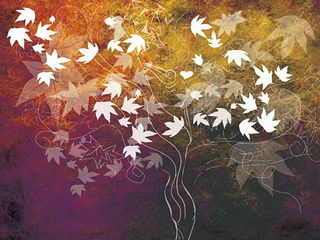
Wind In The Trees
This might be one of Satriani's trippiest mood pieces yet. Over a rhythm that builds in intensity, he plays a heavily effected series of guitar lines and solos that sound like they're, uh, 'Not Of This Earth.' A mind-blowing array of far-out tones that will surely be emulated by guitarists around the world. Mike Keneally's fingers dance effortlessly on the piano at the end.
Joe Satriani says:
“It’s a very deep track. I started it 20 years ago. I remember as a kid looking through my bedroom window in Long Island and seeing the wind whip through the trees. One of my favorite memories - I used to go places in my head when I’d see the leaves blow all around. So it’s a wild, crazy track, but it’s really about this wistful, delicate memory.
"The strange thing is, I used Auto-Tune on my guitar as an effect. Everybody uses it on their vocals, but I decided to try it with a guitar and interact with it like I would a wah-wah pedal. I turned it up to its ugliest setting - total Auto-Tune domination - and it created an outrageous sound that actually was pretty cool.”
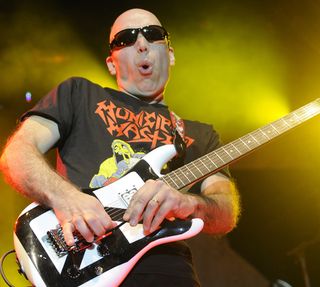
God Is Crying
And like all great showman, Satch goes out with a bang. After a brief electronic drum/handclapped funk intro, he and the rest of the band take off. Satriani's skills as a shredmeister are, by now, the stuff of legend, but on God Is Crying he reaches new levels of fluidity, dexterity and, above all, unfettered passion. Grand and glorious, this is one for the books.
Joe Satriani says:
"This song came right away. I was fooling around with prototypes of my Vox Big Bad Wah pedal, and the music just started happening. But as I started playing, I started to think about the concept of God. What is He? Why do we need Him? And then I thought, if He did come down to Earth, what would He think of what we’ve been doing for so many years? And I thought He’d probably cry. I don’t know if He’d be too happy about our lack of progress.
"I tried to make my guitar sound like it was screaming and crying to convey that. Overall on the record, I tried to get more by playing less. But that’s deceiving: it’s not about playing less, it’s about what you play if you play less. It’s all about choices. At the end of the song, I did go for the big ’rock moment.‘ What makes it so dramatic is created because I was intentionally holding back beforehand.”
For more on Black Swans And Wormhole Wizards and details of Joe Satriani's upcoming tour dates, visit www.satriani.com
Liked this? Now read Joe Satriani's exclusive blogs from the Experience Hendrix Tour
Connect with MusicRadar: via Twitter, Facebook and YouTube
Get MusicRadar straight to your inbox: Sign up for the free weekly newsletter

Joe is a freelance journalist who has, over the past few decades, interviewed hundreds of guitarists for Guitar World, Guitar Player, MusicRadar and Classic Rock. He is also a former editor of Guitar World, contributing writer for Guitar Aficionado and VP of A&R for Island Records. He’s an enthusiastic guitarist, but he’s nowhere near the likes of the people he interviews. Surprisingly, his skills are more suited to the drums. If you need a drummer for your Beatles tribute band, look him up.

"Reggae is more freeform than the blues. But more important, reggae is for everyone": Bob Marley and the Wailers' Catch a Fire, track-by-track

“Part of a beautiful American tradition”: A music theory expert explains the country roots of Beyoncé’s Texas Hold ‘Em, and why it also owes a debt to the blues

"Reggae is more freeform than the blues. But more important, reggae is for everyone": Bob Marley and the Wailers' Catch a Fire, track-by-track

“Part of a beautiful American tradition”: A music theory expert explains the country roots of Beyoncé’s Texas Hold ‘Em, and why it also owes a debt to the blues



